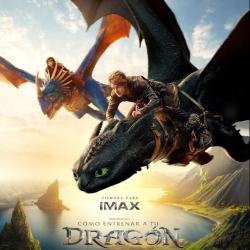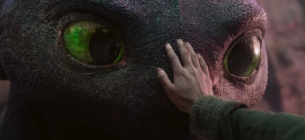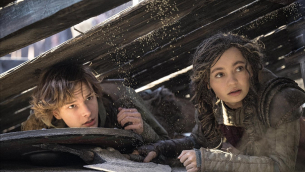The Art of Storytelling Soars Again: A Writer’s Reflection on How to Train Your Dragon (2025)
As a writer by trade and a lifelong lover of storytelling in all its forms, I approach films — especially animated adventures — not merely as entertainment, but as narratives to be dissected, appreciated, and, when done well, celebrated. How to Train Your Dragon (2025), to my delight, is one such film deserving of celebration.
This isn’t just a children’s movie or a franchise extension; it’s a thoughtful, beautifully constructed chapter in a saga that understands what it means to grow — both as a character and as a story.
A Masterclass in Character Growth
One of the rarest things in long-running franchises is the willingness to let characters evolve in authentic, sometimes uncomfortable ways. This film continues Hiccup’s journey not as the wide-eyed boy with something to prove, but as a leader burdened with difficult choices. His bond with Toothless remains the heart of the story, but this time, it’s tinged with the melancholy understanding that all things — even the most beautiful friendships — must eventually change.
As a storyteller, I appreciated how deftly the writers wove themes of leadership, loss, and legacy into a tale still accessible to younger audiences, yet layered enough for adults to find moments of quiet reflection.
World-Building That Feels Lived In
The world of Berk and beyond has always been rich with texture, but here it feels deeper, more weathered by the passage of time. The environments are stunning, not merely for their visual appeal — though the animation is undeniably some of DreamWorks’ finest work to date — but for the way they contribute to the emotional landscape of the film.
The Hidden World, once a place of legend, becomes more than a mythological backdrop; it stands as a metaphor for things we chase in youth, only to realize they may not belong to us forever.
A Narrative That Respects Its Audience
There’s an admirable restraint in this film’s pacing. In an age where many animated features feel compelled to hurl jokes and action at the screen relentlessly, How to Train Your Dragon (2025) isn’t afraid to pause, to let a scene breathe, to allow characters the space to feel. Those quieter moments carry as much narrative weight as any aerial battle — sometimes more.
The story’s emotional beats, particularly those involving Hiccup’s reckoning with his role in his people’s future, struck me with an honesty often missing in blockbuster storytelling. This isn’t just a film about dragons; it’s about identity, courage, and letting go.
As a professional writer and unabashed lover of mythic, character-driven tales, I left How to Train Your Dragon (2025) both satisfied and deeply moved. It’s rare for a franchise of this nature to remain so committed to thoughtful storytelling this far into its lifespan. This film isn’t content with simply revisiting past triumphs; it builds upon them, elevates them, and dares to leave its characters — and audience — changed.
For those who believe, as I do, that stories shape us, this film is a worthy chapter in a saga that continues to soar.









